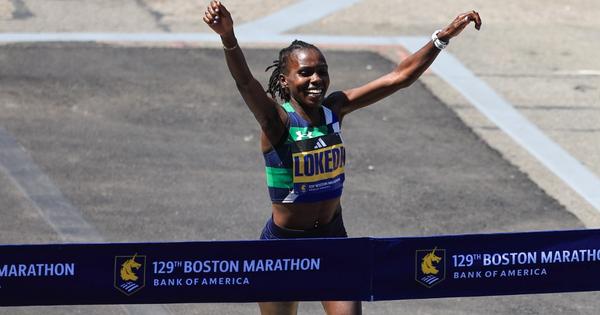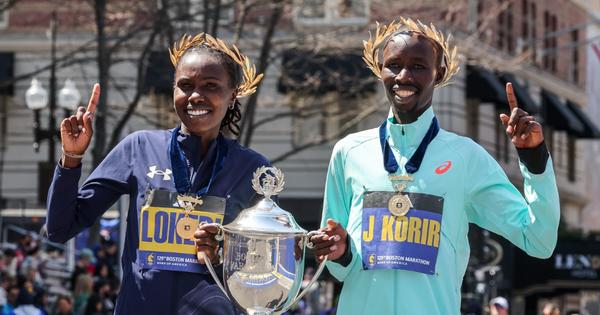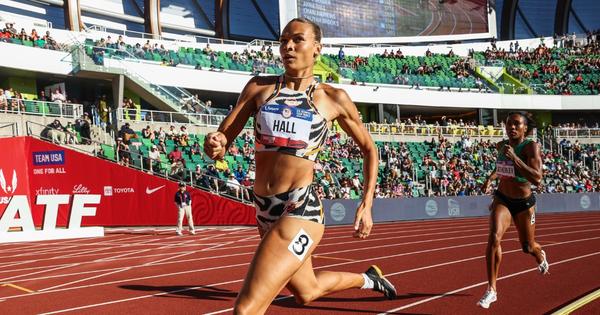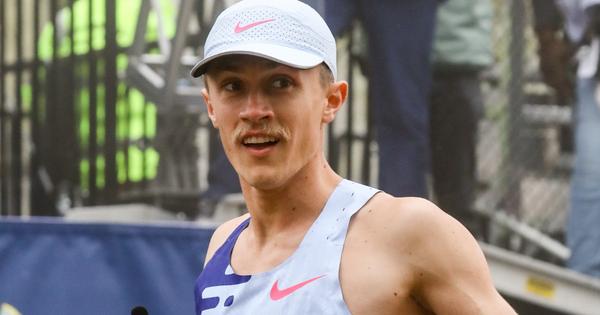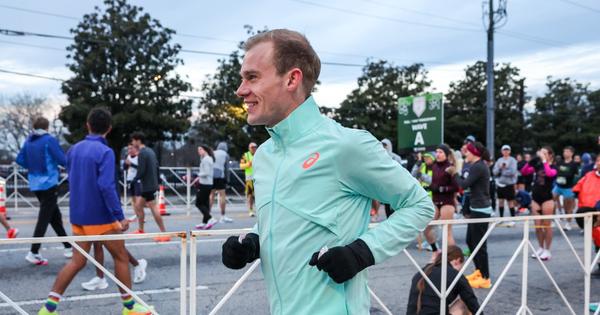By David Melly
April 23, 2025
Who needs a red carpet when you have the painted blue lines through Boston’s Back Bay?
When the top runners in Monday’s Boston Marathon turned right on Hereford, then left on Boylston to complete the 129th running of the historic 26.2 mile course, there were a fair few familiar names near the top of the ranks. But once they crossed the finish line, with John Korir breaking the tape in the men’s race and Sharon Lokedi in the women’s, the dynamic of the global marathoning scene felt decidedly different.
There weren’t a lot of true “upsets” or surprises out of Boston this year; instead the unifying theme seemed to be a lot of up-and-coming stars making a true statement that they’re not so up-and-coming any more. They’re here.
John Korir has been running marathons since 2018 and running in the 2:05s since 2022, but it wasn’t until last fall that he became much more of a household name via his first World Marathon Major victory, an epic 2:02:44 win in Chicago. After finishing ninth in Boston in 2023 and fourth in 2024, all of a sudden Korir was forcing the world to consider him a serious contender for the win.
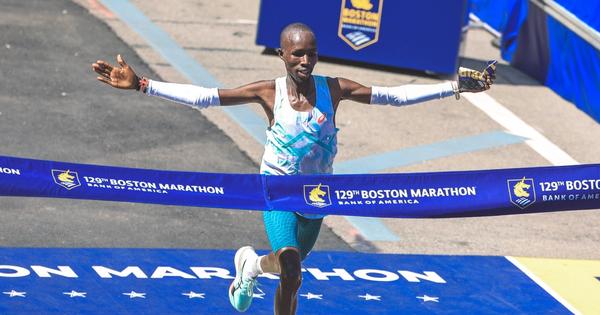
John Korir | Photo by Justin Britton / @justinbritton
But Korir still had to go through defending champ Sisay Lemma, two-time champ Evans Chebet, and the rest of the talented elite field, and when he fell flat on his face a few steps into the race, it looked like perhaps he wouldn’t get the chance to back up his Chicago performance. But ultimately, Lemma and Chebet would both clock DNFs, Korir would stick with the lead pack through a fast first half (61:54), then drop a lethal move up Heartbreak hill to put 16 seconds on the field between mile 20 and 21, and ride the momentum to the finish. He broke the tape in 2:04:45, the second-fastest winning mark in race history. He also became half of the first sibling duo to win Boston titles—his older brother Wesley won the 2012 edition of the race.
After the dust settled on Monday, Korir now looks like a very different kind of runner: he’s 28 years old, has won his last two World majors in commanding form across two different race styles, and in a relatively wide-open year for the world’s top male marathoner, he’s now inarguably part of the conversation. A few days ago, he was an “in the mix” kind of guy—helped by the fact that there were no double WMM major winners on the men’s side in 2024—but now he’s the guy to beat.
Behind him, there were a number of athletes that also announced their arrivals on the global stage, most notably American Conner Mantz, who backed up his breakout start to 2025 with a 2:05:08 run for fourth place behind Tanzanian Alphonce Simbu and Kenyan Cybrian Kotut. It was both Mantz’s fastest performance by over two minutes and his highest WMM finish to date, falling just four seconds short of the podium and ten seconds behind Ryan Hall’s all-conditions U.S. best from the same course in 2011. Now, we no longer have to speculate that Mantz is probably a 2:05 guy based on comparable performances; he’s proven it definitively.
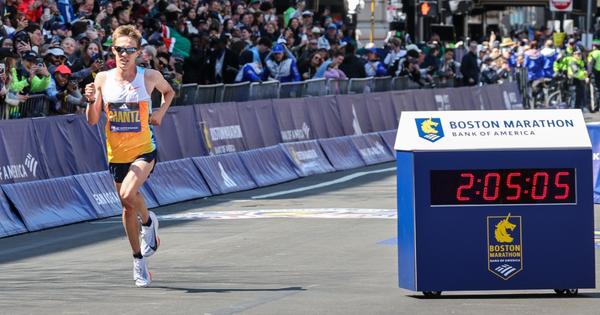
Conner Mantz | Photo by Kevin Morris / @kevmofoto
It was a great day for BYU alumni across the board as former Cougars picked up three spots in the top ten, with Canadian Rory Linkletter (sixth in 2:07:02) and Clayton Young (seventh in 2:07:04) both clocking career-high finishes and lifetime-best times. Linkletter’s previous best finish at Boston was 33rd in 2021, so it’s gotta feel good to jump a fair few spots. And one spot ahead of them, two-time World 5000m champ Muktar Edris showed he’s going to be just as hard to beat on the roads as the track, as his marathon debut ended with an impressive 2:05:59, fifth-place finish.
On the women’s side, the race opened up at a crawl over the first few miles but didn’t stay that way for long. By 10 kilometers the leaders were running sub-2:16 pace and the eventual top five hit halfway in 1:08:46. Irene Cheptai, Yalemzerf Yehualaw, and Amane Beriso have all clocked sub-2:18 performances in the past, but this was unfamiliar territory for last year’s 1-2, Hellen Obiri and Sharon Lokedi, whose penchant for championship-style racing and prowess over hilly courses like Boston and NYC meant that they entered the race with personal bests more than five minutes slower than the top seeds’. But experience and talent can’t always be captured by past times alone, and Lokedi and Obiri shook off all other competitors one by one through the Newton hills until, by mile 22, only Yehualaw remained with the duo.
Lokedi then put on a master-class that also served as a taste of Obiri’s own medicine, tightening the screws from 35k onward and simply running the kick out of her rival’s legs. Obiri didn’t truly cave until the final mile, when Lokedi split 5:05 to Obiri’s 5:23, and after finishing behind her fellow Kenyan in their last five straight matchups, Lokedi got back on top of the podium with her second WMM win in a blazing 2:17:22 course record.
She and Obiri (2:17:41) now have PBs that reflect closer to their all-out capability, and while Lokedi has never finished outside the top ten in a marathon, her victory in Boston feels like the strongest vindication yet that her stunning 2022 debut in New York was no fluke. Obiri still may be one of the best, if not the best, marathoner in the world, but Lokedi’s name deserves mention in the same breath as Olympic champ Sifan Hassan, world record holder Ruth Chepngetich, and the handful of fellow world-beaters with legitimate claims to world #1.
American performances in Boston shook out as a bit of a mixed bag, as pre-race contenders like Emma Bates (13th in 2:25:10), Dakotah Popehn (16th in 2:26:09), Sara Hall (18th in 2:26:32), and Keira D’Amato (35th in 2:35:57) didn’t have the days that they were hoping for. One of the more impressive showings was 41-year-old Des Linden claiming top Master honors in 17th overall in 2:26:16, her fastest marathon in eight years but also her final Boston as a professional, which she announced shortly before the race. But the breakout performers of the day were Jess McClain and Annie Frisbie, finishing seventh (2:22:43) and eighth (2:23:21), respectively, in new PBs.
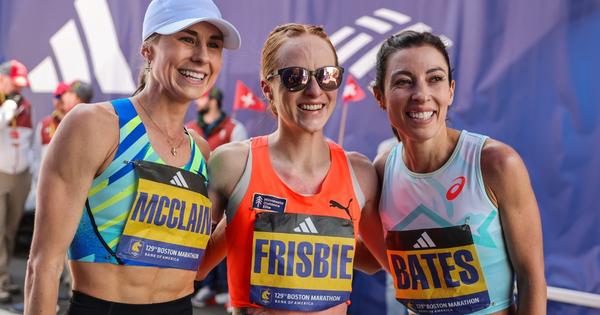
Jess McClain, Annie Frisbie, Emma Bates | Photo by Kevin Morris / @kevmofoto
McClain has received a lot of well-deserved press over the last year or so after her surprise fourth-place finish at last year’s Olympic Trials, continuing a strong start to her marathoning career after some time away from the sport in 2020 and 2021. After finishing eighth place in NYC last fall and now seventh in Boston this spring, she’s proven that she can compete against international competition as well as domestic.
For even relatively dialed-in marathon fans, Frisbie and men’s tenth-placer Ryan Ford were likely the most surprising names to pop up in the top ten. Frisbie stayed with the leaders early and was hanging onto top American honors until the last two miles, when McClain overtook her. But Frisbie still got a huge improvement on her previous personal best (2:26:18), which came from her 2021 debut in New York City where she finished seventh. If she pops up in the top ten of WMMs a few more times, it’ll become increasingly foolish to ever count her out of top American contention.
Ford, a ZAP Endurance runner who competed collegiately for University of Tennessee-Martin and Iowa State, finished 11th in his marathon debut in New York last fall, but moving one place and three minutes up in Boston puts him in much more rarified air. His 2:08:00 slots him tenth on the U.S. all-conditions list as well, and like Matt Richtman before him, he seems to be proving that a decorated NCAA track career is less and less of a prerequisite for marathon success. Ford and Frisbie haven’t quite solidified their presence on the scene like Mantz or McClain yet, but they’re putting up the kind of results that generally suggest they’re nearing the crest of a wave of marathoning greatness.
This year’s Boston Marathon wasn’t full of crazy flukes or adding padding to GOAT resumes, but instead it offered something a bit more interesting: clear signs of change in the global marathoning scene, where stars who’d previously shown flashes of brilliance sent a loud and clear message that they’re in it for the long run (pun intended). Coming out of a year with a lot of parity at the top of the marathoning ranks, the event is more exciting than ever in 2025 for one main reason: anyone can win, and anyone can lose. And the next time the big winners out of Boston toe the start line of a major marathon, they’ll be the ones everyone else wants to beat.
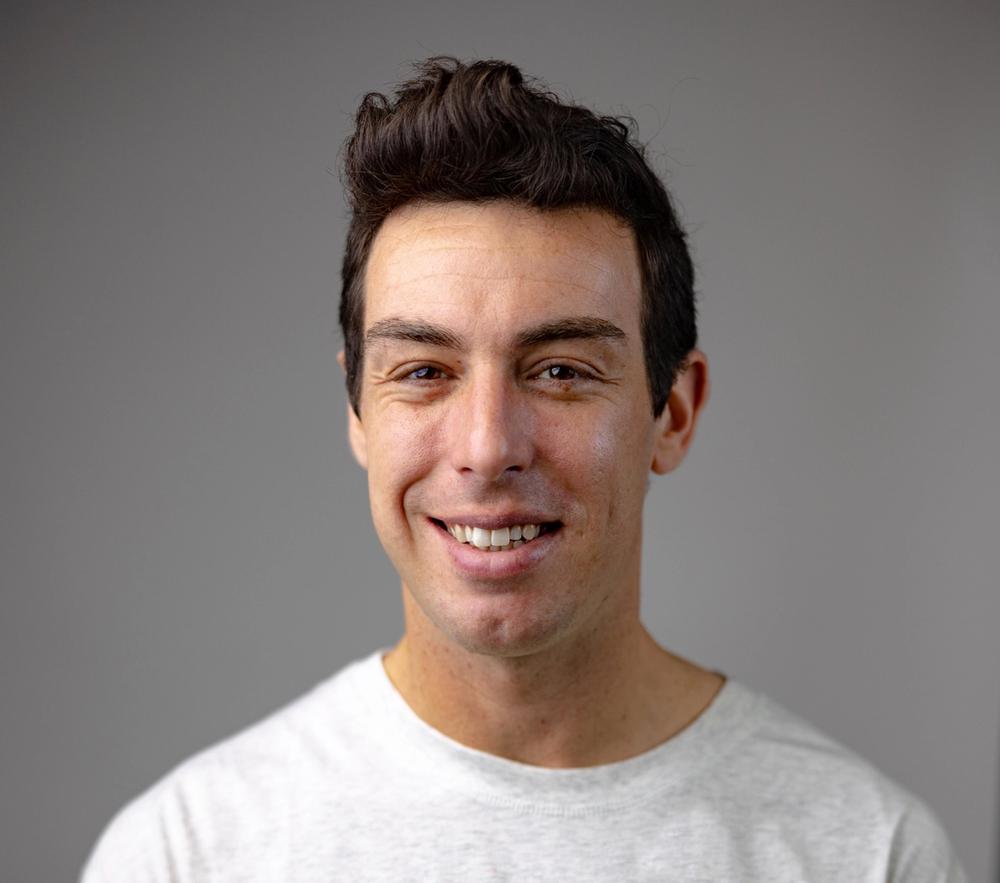
David Melly
David began contributing to CITIUS in 2018, and quickly cemented himself as an integral part of the team thanks to his quick wit, hot takes, undying love for the sport and willingness to get yelled at online.
